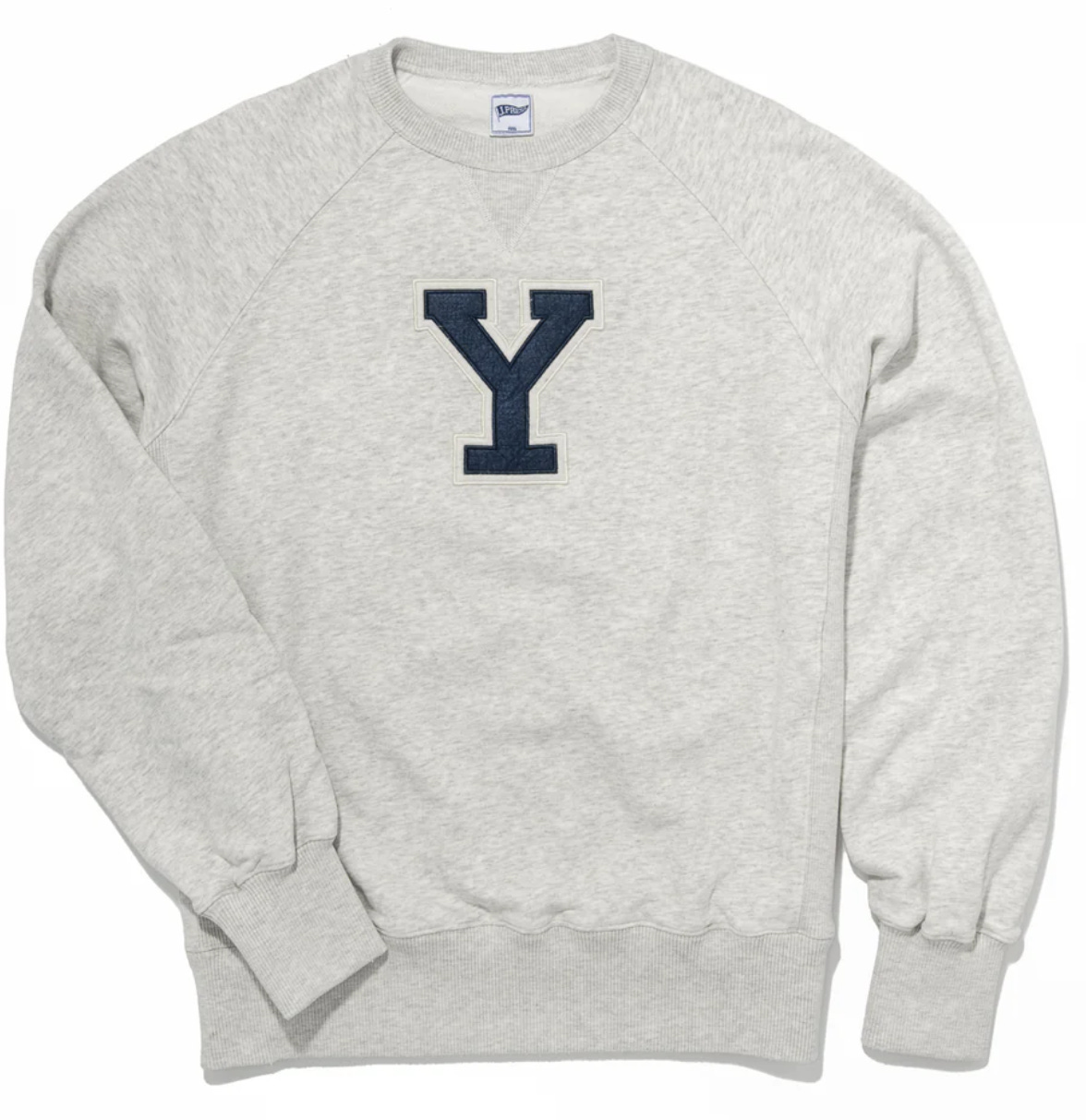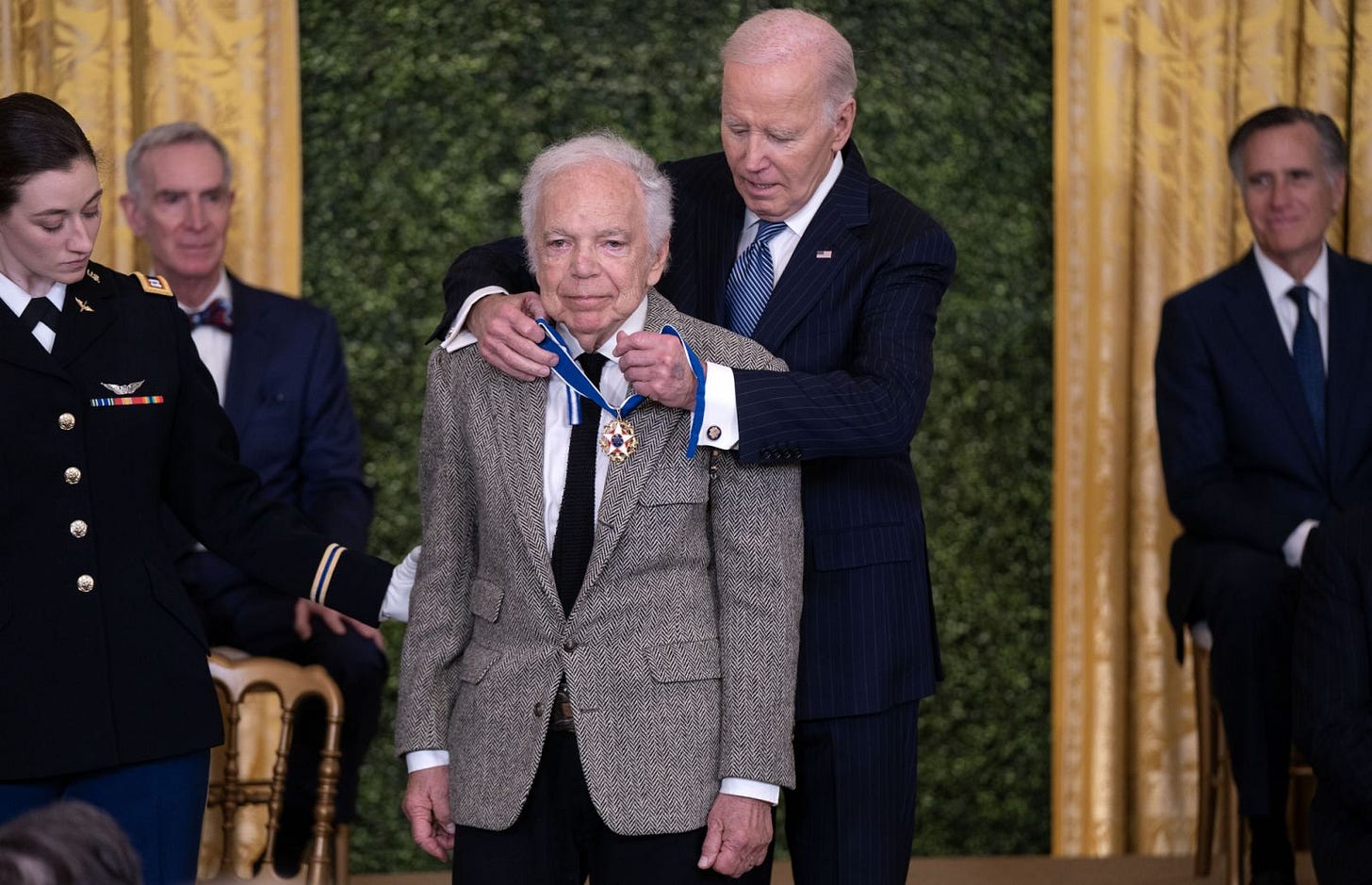Wearing the Letters, Without the Degree
Is It Okay to Wear College Apparel Without Being an Alum?
I was sent this great question by reader Pat Kelly: How do you feel about wearing clothes with a school name if you didn’t attend the school?
Yes it’s ok. And here’s why.
Before diving into this article, I’ll admit this question was originally sent in for the Easy on the Ivy podcast. I was all set to record when I realized I had found my New Year’s resolution: to get my voice back and shake off the tonsillitis. Without a voice, making a podcast wasn’t going to happen. So rather than let a great question go to waste, I decided to explore it further in this article.
A few years ago, I picked up an old Princeton pennant from a vintage store. I just liked the look of it. True, I’ve never been to Princeton, never attended the college, and have no plans to visit anytime soon. But that doesn’t mean I don’t respect the pennant as a piece of Americana. When I posted a picture of the pennant on Instagram, someone questioned my choice—pointing out that I didn’t have a personal connection to the school.
I understand how proud people are of where they went to college, even if the person who criticized me didn’t actually attend there themselves! It’s a huge achievement, and I’m in no way diminishing that for anyone. But what I will say is, it’s just clothing. Why can’t collegiate clothing be treated the same way we treat military surplus? We’ve adopted military surplus into our wardrobes because it’s clothing engineered to withstand wear and tear, making it the perfect choice for longevity and quality. Collegiate clothing, in many ways, is the same.
Take the sweatshirt, for example. I wear my Yale one by J.Press all the time. Why? Apart from the design, it’s the cut and quality. It can feel nearly impossible to find a sweatshirt of this design these days, especially if you’re looking to buy one new. So why can’t we adopt the ethos of buying military surplus and purchase something built to last? These garments were often made for elite colleges and therefore came with high budgets to produce premium garments. If that’s not a good reason to buy into this, I don’t know what is!
Culturally, I see collegiate clothing not necessarily as celebrating the college on your chest or the letter on your side, but as a showcase of American style and how it continues to inspire new generations of designers, stylists, and wearers. We only need to look at Ralph Lauren, who was recently recognized by the White House with the Presidential Medal of Freedom for his contribution to pop culture in America.
I understand why people have strong opinions, but I’d remind them of the reasons I’ve listed above. Perhaps it’s just something lost in translation. Do they think I’m trying to say I attended that college? Do I care? Not really, and neither should you. I suppose it’s okay unless you’re actively walking around Harvard in full collegiate attire trying to sneak into a class—then there’s a problem. But honestly, I don’t think it should be taken too seriously.
One aspect I fully sympathize with is that many of these institutions historically discriminated against who could attend. That, obviously, was completely unacceptable. However, these institutions have made changes since, and it’s all about the connotations when wearing these items. Most people wearing these pieces today do so as a style choice, not as a celebration of a problematic past.
In places like Manchester, where I live, varsity clothing is prevalent in vintage stores, the style leans more towards sportswear. You’ll find plenty of coach jackets, sweatshirts, and varsity jackets from the 80s and 90s, and if you dig deep enough, you might stumble upon an older piece still in wearable condition. Interestingly, many people in the UK are drawn to Ivy style without fully understanding what it is. They might call it “preppy,” but the key distinction is that they’re not buying these pieces because of the college name plastered across them. Instead, it’s the design, the fit, and the romance of wearing something that once belonged to a college athlete that appeals to them. This mindset reflects a larger trend: we admire the legacy and the craftsmanship behind these garments, not the affiliations themselves.
Wearing college apparel without being an alum is more about appreciating the craftsmanship, style, and cultural significance rather than falsely claiming an affiliation. Whether in the UK or the US, the appeal of collegiate clothing transcends the college name on the chest. It’s about the timeless design, the quality craftsmanship, and the romanticized idea of wearing something that once had a place in the world of top college athletes. Just as military surplus has been embraced for its durability and style, so too can collegiate clothing be celebrated for its history, longevity, and enduring influence on modern fashion. Let’s celebrate the fashion without overthinking the affiliations.
Thanks to Pat Kelly for sending in the question. If you ever have a question you’d like answering in a future article of episode of the podcast, let me know in the comments!











I think this makes sense from a British person's perspective; the institutions are removed enough from your context.
I'd probably assume someone here in the states who's wearing a piece of Ivy league clothing actually attended that school (perhaps if the wearer is still in high school, it's aspirational or a parent attended).
But if someone stateside is wearing a Cambridge or Oxford shirt, I'd just as likely assume it's in a commercial rather than representational context.
I didn't attend an Ivy, but I did attend St Andrews--I'm much more inclined to incorporate that iconography (even if it's not Americana) into my wardrobe than pick up a Yale sweatshirt.
We could get into semiotics but, as my partner’s nan used to say: if it suits the wearer, b***** the starer.
I understand the point of the question, but it’s bit like sportswear - plenty people like Yankees merch without knowing who they play at shortstop.
Or to put it another way, who wants to be one of those people who says you can’t wear a Motörhead t-shirt without being able to recite the track listing from their debut album?